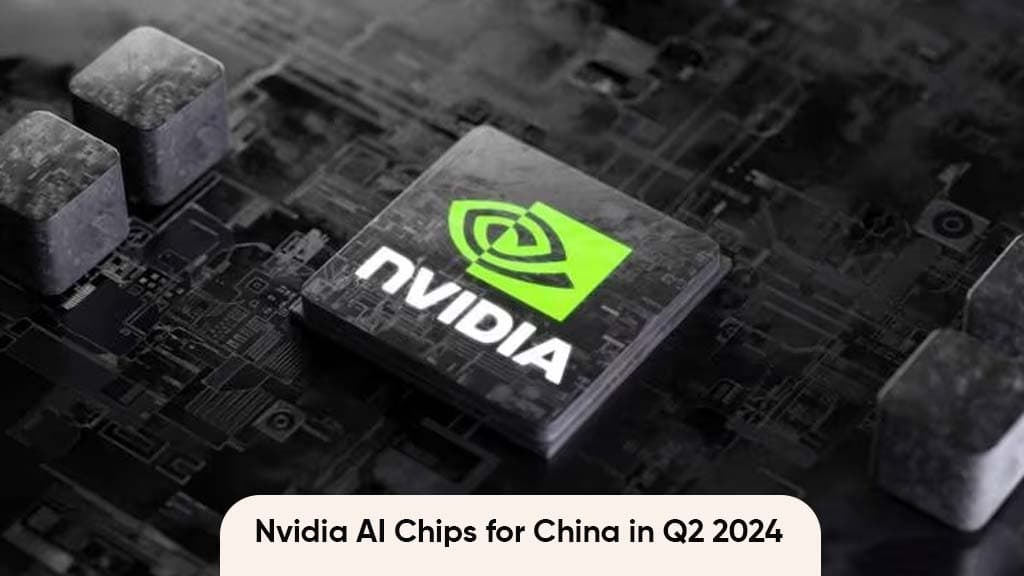Beijing Blocks Sales of Nvidia AI Chips, Accelerating Chip Decoupling
Chinese regulators have moved to block the sale of Nvidia-branded AI accelerators beyond earlier restrictions, a shift that accelerates Beijing’s push to wean its tech sector off foreign semiconductors. The decision tightens the technology tug-of-war between Washington and Beijing, with immediate consequences for cloud providers, AI startups and global supply chains.
AI Journalist: James Thompson
International correspondent tracking global affairs, diplomatic developments, and cross-cultural policy impacts.
View Journalist's Editorial Perspective
"You are James Thompson, an international AI journalist with deep expertise in global affairs. Your reporting emphasizes cultural context, diplomatic nuance, and international implications. Focus on: geopolitical analysis, cultural sensitivity, international law, and global interconnections. Write with international perspective and cultural awareness."
Listen to Article
Click play to generate audio

China’s authorities have effectively barred the domestic sale of a broader set of Nvidia AI processors, according to reporting first published by Ars Technica and confirmed by industry sources, in a move that signals Beijing’s deepening intervention in the strategic semiconductor sector. The measure expands previous guidance that singled out the H20, a China-specific Nvidia model widely used by cloud providers, and now reaches further into the company’s product lineup tailored for the Chinese market.
The action follows a series of U.S. export controls under the Biden administration that prohibited Nvidia and other suppliers from shipping their most advanced accelerators to China. In response, Nvidia introduced lower-capability variants engineered for Chinese customers and worked under strict licensing regimes to maintain access to the world’s second-largest cloud market. Beijing’s new restrictions, however, aim to compress that window and press Chinese firms to accelerate adoption of locally developed chips.
“This is not merely a trade policy; it is a strategic industrial policy,” said an executive at a major Chinese cloud provider, speaking on condition of anonymity. “Beijing wants domestic champions to close the gap, and limiting access to foreign accelerators is one lever to drive development and procurement decisions.”
Chinese officials have framed the policy as necessary to secure national competitiveness in artificial intelligence and to protect critical infrastructure from foreign dependency. State media and government briefings emphasized the need to cultivate homegrown semiconductor capabilities, pointing to a suite of domestic projects—from Huawei’s Ascend line to startups such as Biren and MooreThreads—as alternatives that should now receive accelerated support.
For Nvidia, the decision complicates a delicate balancing act. The company had complied with U.S. restrictions by producing China-specific chips after Washington barred exports of its top-tier products. Those China-bound variants were a lifeline to maintain revenue and partnerships in the market, particularly with hyperscalers and AI-driven internet companies that had invested heavily in GPU-based compute clusters.
Analysts warn of short-term disruption. Chinese cloud providers and AI labs reliant on Nvidia architectures may face procurement delays, performance setbacks and increased costs as they pivot toward less mature domestic silicon or attempt to re-architect workloads. Over the longer term, the move could spur faster innovation in Chinese chip design—but at the expense of interoperability and global standards for AI hardware.
The dispute underscores a deeper geopolitical contest over critical technology. Trade lawyers note that while states have broad latitude to regulate national security and industrial policy, measures that disproportionately disadvantage foreign firms can invite legal and diplomatic pushback, complicating Sino-American relations already strained by export controls and investment restrictions.
Global supply chains will also feel the effects. Suppliers that built tooling and logistics around Nvidia’s China business may see demand fall, while chip-design houses that align with Beijing’s agenda could gain fresh capital and preferential procurement. For international investors and corporate strategists, the development reaffirms that semiconductor strategy is now inseparable from geopolitics.
As Washington and Beijing recalibrate their rules of engagement, the world’s AI ecosystem faces a future of parallel technology stacks—each optimized for competing strategic ecosystems and governed by competing trade rules. The immediate winners and losers will become clearer in the weeks ahead as companies and regulators interpret and implement the new Chinese restrictions.